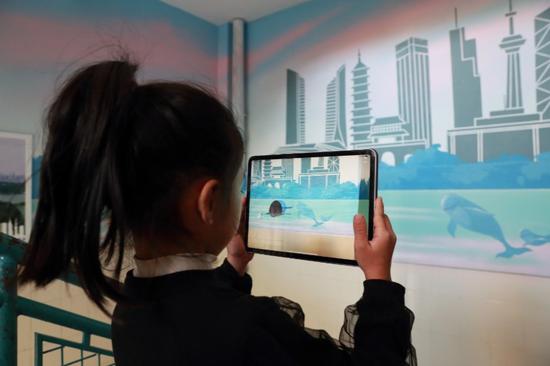Ministry promotes AI education in schools
The Ministry of Education has recently issued a guideline calling for increased efforts to strengthen artificial intelligence education in primary and secondary schools.
According to the guideline, the overall objectives of strengthening AI education in primary and secondary schools include: cultivating future-oriented talent; enhancing students' problem-solving abilities, as well as their digital literacy and skills; fostering the spirit of innovation; and guiding students to correctly deal with the relationship between humanity, technologies and society.
By 2030, AI education will be prevalent in primary and secondary schools, it said.
The guideline underscored the need to develop a systematic AI curriculum and implement regular AI education.
It specified requirements of AI education at different phases: for lower-level primary students, the emphasis is on perceiving and experiencing AI technologies; while for those in higher grade levels, the focus is on understanding and applying AI technologies.
Senior high school students are supposed to experiment with developing AI projects and exploring frontier AI applications.
The guideline advocated task-based, project-based and question-based AI education and integration with information technology and labor courses, scientific and practice activities and after-school services.
It urged the development of AI teaching resources tailored to the needs of students and making AI education ubiquitous. Efforts should be stepped up to pool quality teaching resources and promote mutual sharing through the AI education section on an online smart education platform called Smart Education of China, according to the guideline.
It also stressed that AI education bases in primary and middle schools should be established with an eye on equitable allocation of resources, and AI laboratories and exhibition halls at universities, scientific research institutes and high-tech enterprises are encouraged to open to primary and secondary schools.
Furthermore, there's a need to increase the number of AI teachers and beef up teacher training, the guideline said. Qualified experts at universities, scientific research institutes and high-tech enterprises are welcomed to serve as part-time AI teachers in schools.
The guideline came as part of China's efforts to steer AI technologies toward revolutionizing education. In 2017, the State Council issued a guideline on developing artificial intelligence, which stipulated that primary and secondary schools should offer AI courses.
"Artificial intelligence is the golden key for the education system which affects the future of education. There are intertwined opportunities and challenges," Minister of Education Huai Jinpeng has said.
In February, the ministry announced a list of 184 primary and secondary schools selected as AI education bases, with the aim of facilitating the implementation of AI education.
Wang Geng, director of the information department of the Tianjin-based Attached High School to Nankai University, was quoted by Outlook Weekly news magazine as saying that students should understand the basic functions of intelligent machines, including how they learn, perceive, interact and infer, to understand the similarities and differences between AI and humans in solving problems.
"On top of this, they can explore simple AI applications and cultivate interest, which are the top priority of AI education in primary and secondary schools," he said.
Xu Nuo contributed to this story.

